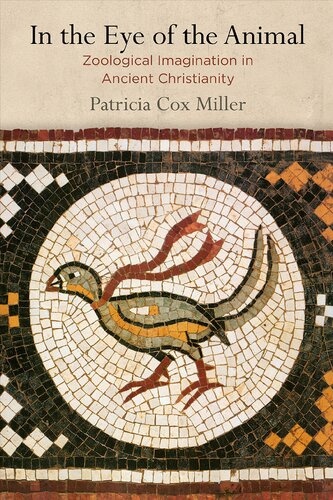

Most ebook files are in PDF format, so you can easily read them using various software such as Foxit Reader or directly on the Google Chrome browser.
Some ebook files are released by publishers in other formats such as .awz, .mobi, .epub, .fb2, etc. You may need to install specific software to read these formats on mobile/PC, such as Calibre.
Please read the tutorial at this link: https://ebookbell.com/faq
We offer FREE conversion to the popular formats you request; however, this may take some time. Therefore, right after payment, please email us, and we will try to provide the service as quickly as possible.
For some exceptional file formats or broken links (if any), please refrain from opening any disputes. Instead, email us first, and we will try to assist within a maximum of 6 hours.
EbookBell Team

0.0
0 reviewsEarly Christian theology posited a strict division between animals and humans. Nevertheless, animal figures abound in early Christian literature and art—from Augustine's renowned "wonder at the agility of the mosquito on the wing," to vivid exegeses of the six days of creation detailed in Genesis—and when they appear, the distinctions between human and animal are often dissolved. How, asks Patricia Cox Miller, does one account for the stunning zoological imagination found in a wide variety of genres of ancient Christian texts?
In the Eye of the Animal complicates the role of animals in early Christian thought by showing how textual and artistic images and interpretive procedures actually celebrated a continuum of human and animal life. Synthesizing early Christian studies, contemporary philosophy, animal studies, ethology, and modern poetry, Miller identifies two contradictory strands in early Christian thinking about animals. The dominant thread viewed the body and soul of the human being as dominical, or the crowning achievement of creation; animals, with their defective souls, related to humans only as reminders of the brutish physical form. However, the second strand relied upon the idea of a continuum of animal life, which enabled comparisons between animals and humans. This second tendency, explains Miller, arises particularly in early Christian literature in which ascetic identity, the body, and ethics intersect. She explores the tension between these modes by tracing the image of the animal in early Christian literature, from the ethical animal behavior on display in Basil of Caesarea's Hexaemeron and the anonymous Physiologus, to the role of animals in articulating erotic desire, and from the idyllic intimacy of monks and animals in literature of desert ascetism to early Christian art that envisions paradise through human-animal symbiosis.